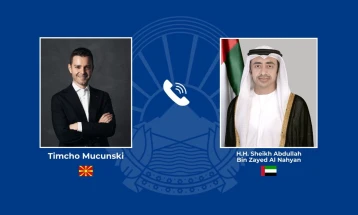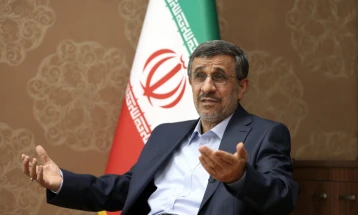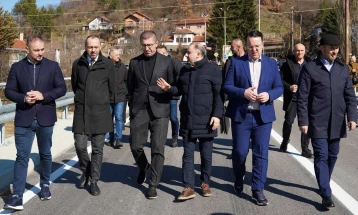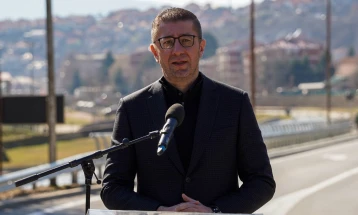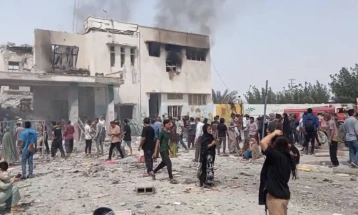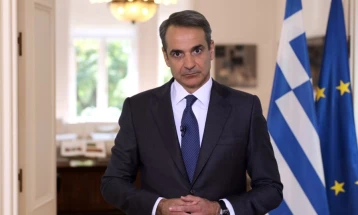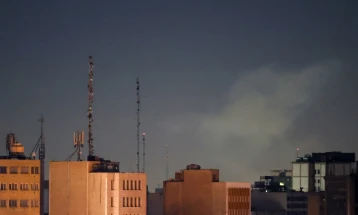Report on journalists' safety: Threats, intimidation, restrictive legislation against media workers continue
- Threats, intimidation, detentions, restrictive legislation, abusive lawsuits, media capture, and attacks on public service media are the major issues impairing press freedom in Europe, according to the 2024 report assesing press freedom in Europe by the partner organisations of the Council of Europe Platform to Promote the Protection of Journalism and Safety of Journalists, MIA's Brussels correspondent reports.
- Post By Magdalena Reed
- 14:27, 5 March, 2024

Brussels, 5 March 2024 (MIA) — Threats, intimidation, detentions, restrictive legislation, abusive lawsuits, media capture, and attacks on public service media are the major issues impairing press freedom in Europe, according to the 2024 report assesing press freedom in Europe by the partner organisations of the Council of Europe Platform to Promote the Protection of Journalism and Safety of Journalists, MIA's Brussels correspondent reports.
The report covers the 46 Council of Europe member states as well as Russia, following its expulsion from the Council of Europe in 2022, and Belarus.
Titled "Press Freedom in Europe: Time to Turn the Tide," it points out that journalists have been illegally targeted with spyware systems, put under pressure from intimidation lawsuits intended to censor and silence them, and forced to go into exile.
The platform partners published 285 alerts on serious threats or attacks to media freedom in Europe in 2023, compared to 289 alerts in 2022.
Even though in 2023 the number of journalists killed and street violence against them decreased, the alerts on the platform show a growing diversity of threats, pressure and constraints under which journalists need to do their work.
According to CoE Secretary General Marija Pejčinović Burić, the 2024 Safety of Journalists Platform report shows the increasing risks and obstacles that journalists and media face in Europe.
"We need determined action from states to protect journalists and counter threats to media freedom such as abusive lawsuits and illegal surveillance," she said.
Pejčinović Burić urged member states to show a strong commitment to respecting media freedom standards and promote the Council of Europe’s "Journalists Matter" campaign at the national level.
The report highlights that media freedom and journalists' digital security across Europe continues to be threatened by the ongoing use of spyware technology to surveil journalists and media workers, while accountability for the use of surveillance technology against media proved to be elusive.
The report also says Europe is facing an unprecedented number of media workers being driven into exile, mainly from Russia and Belarus. "Main reasons for fleeing are physical risks to life and liberty, legal prosecution; and harassment, threats and intimidation – and these risks do not stop at the borders of the countries from which journalists flee," the report says.
"A major concern for the ability of journalists in exile to continue their work is transnational repression. This is on the rise with reports of physical attacks, kidnappings, and even extrajudicial killings in journalists’ country of exile. Furthermore, threats such as online harassment and cyber-attacks transcend borders and continue to haunt journalists that have fled their home country. Family members also become the target of attacks, to force critical journalists to cease their reporting from abroad," it adds.
Media freedom and free expression are also hindered by legal actions, including Strategic Lawsuits Against Public Participation initiated by politicians, businessmen and other powerful entities. Sued for defamation, reporters face the risk of criminal charges and high fines.
Also, the report says, the Russian war of aggression against Ukraine has had major effects on press freedom and the safety of journalists, pointing to the cases of Bohdan Bitik and Arman Soldin, the two journalists killed in Ukraine in 2023.
The report also documents the killing of security guard Pal Kola in a firearm attack on the Top Channel office building in Tirana, Albania.
The Russian authorities have held at least 27 journalists in detention in December 2023, plus 17 Ukrainian media professionals from the occupied territories. "While journalists have been detained for a few days for attempting to cover trials or political meetings, or deported on undisclosed reasons, charges of spreading false information against the armed forces constitute the bulk of the indictments," it says.
"The year was also marked by the return of the practice of institutionalised hostage taking in Russia, with the arrests of Evan Gershkovich at the end of March, and Alsu Kurmasheva in mid-October, both United States nationals and journalists, seen by the Russian authorities as potential bargaining chips," the report notes.
The report also recalls that in October 2023, the Council of Europe launched a Europe-wide campaign, Journalists Matter, aimed at strengthening the protections for journalists in law and practice, and raising public awareness of the part played by independent news media in holding the powerful to account.
"The wider message of the campaign is that press freedom is a common public good which deserves the support of everyone," the report says.
The Council of Europe’s Platform to promote the protection of journalism and safety of journalists was set up by the Council of Europe in 2015, in cooperation with prominent international NGOs active in the field of the freedom of expression and associations of journalists, to provide information which may serve as a basis for dialogue with member states about possible protective or remedial action.
Partner organizations of CoE's Platform to Promote the Protection of Journalism and Safety of Journalists are the European Federation of Journalists, the International Federation of Journalists, the Association of European Journalists, Article 19, Reporters Without Borders, the Committee to Protect Journalists, Index on Censorship, the International Press Institute, the International News Safety Institute, the Rory Peck Trust, the European Broadcasting Union, PEN International, the European Center for Press and Media Freedom, Free Press Unlimited, and the Justice for Journalists Foundation. mr/
